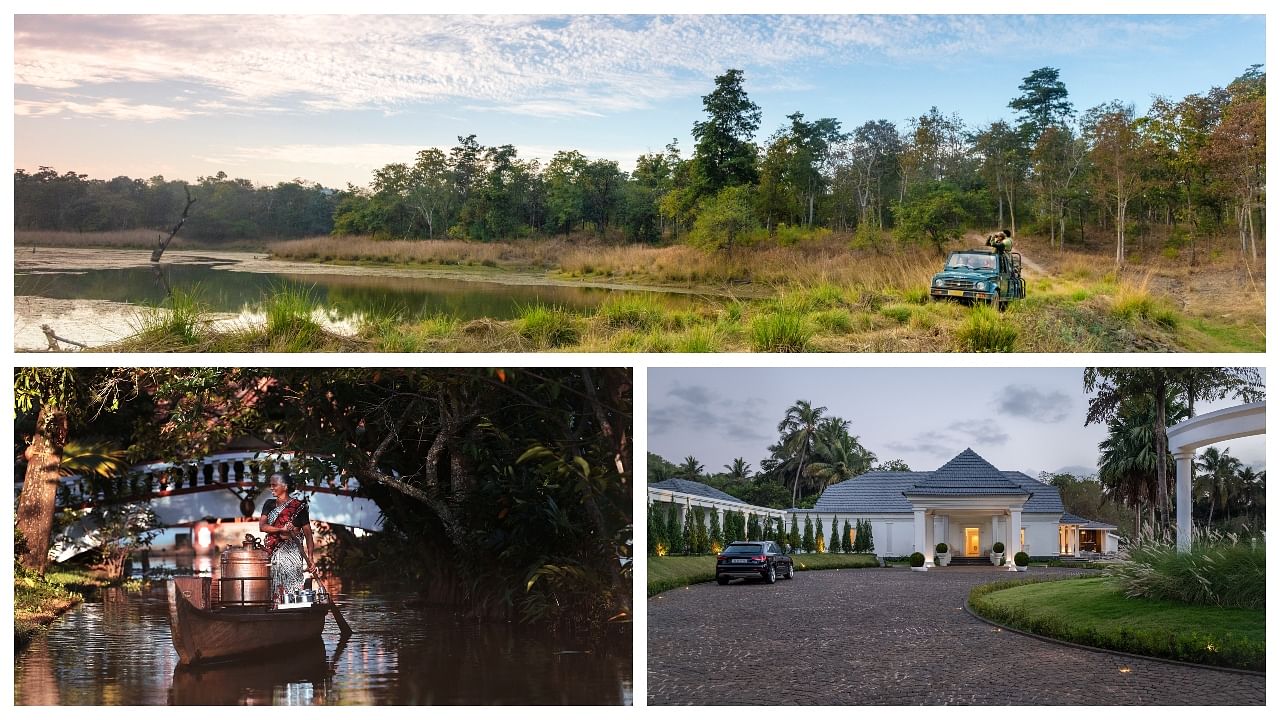
India has always been one of South Asia's most preferred tourist destinations because of its myriad cultural practices and geographical variety. Recently, the country's sustainable tourism sector has also seen a boost.
Aly Rashid, director of Jehan Numa Wilderness, which runs the quaint Reni Pani Jungle Lodge near the Satpura National Park and Tiger Reserve, affirms that the demand for sustainable and eco-friendly tourism has risen significantly in the last five years.
"In the last five years, there has been a shift towards experiential travel, whether to experience wildlife or understand local cultures," said Rashid. Their properties have eradicated single-use plastic for five years.
"We've reforested the land on which Reni Pani stands, and it is now a thriving wildlife corridor. We've revived the land around Bori Safari for smaller species of birds, and we've started a butterfly garden too. We encourage non-motorised safaris on foot, canoes and cycling, and 80-90 per cent of our staff come from local communities," he said.
Booking.com research in 2020 found that 96 per cent of Indian travellers identified sustainable travel as necessary, while 76 per cent said they were determined to make sustainable choices when travelling again.
Rising awareness of the need to be safe, healthy, and natural has become the new mantra for leisure and luxury tourism.
"While the number of foreign tourists asking for eco-friendly properties is higher than domestic tourists, awareness is spreading fast. Even domestic travellers are thinking and working towards neutralising their carbon footprint," said Malayanil Singh, Senior Vice President of Trail Blazer Tours, Mumbai. "The experience at a genuine eco-friendly property is certainly better and healthier. Food is made with locally available produce, and the trained staff hired from the local community takes genuine pride in showcasing their area to tourists."
The environmental, ecological, and socio-cultural aspects of non-urban destinations are now a vital part of a destination's attraction.
"We've seen a clear shift in what the traveller wants, especially the younger generation," said Michael Dominic, CEO, CGH Earth Experience Hotels to DH. "They are looking for unique experiences that will not leave them feeling guilty about damaging the planet to have a good time."
"When you derive your travel experiences from everything hyperlocal, this automatically happens. Our property, Spice Village in Kerala, is modelled around a native Manan tribe village and embraces the Thekkady environment and the Periyar forest."
The cottage roofs at Spice Village are made of dried elephant grass. The furniture is refashioned from salvaged wood from packaging crates, and 70 per cent of the resort's energy needs are met by solar energy.
Eco-friendly does not mean a rough and tumble jungle holiday. Discerning tourists want their luxury without the guilt of making the planet pay the price.
One such boutique hotel, Mansion Haus in Goa, sets high standards for conscious luxury. From building materials to the entire supply chain, owner Kezya De Bragança has ensured that her restored 18-century Portuguese-style family residence adheres to sustainable norms.
The wood of a 100-year-old ship stranded off the coast of the Arabian Sea has been repurposed to create a Summer Room; the tea is sourced locally, and the glass packaging is recyclable. As a plastic and paper-free property, all in-room amenities are bottled in glass by their lab, informed Bragança.
While the hosts of these eco-friendly properties are doing their bit for sustainable hospitality, they expect their guests to be responsible travellers. Travel light, reduce your carbon footprint, respect local culture, customs and dress codes, avoid single-use plastic, do not litter, and eat and shop local.
(The author is a lifestyle, celebrity, and travel feature writer who has worked in a senior capacity with leading publishing houses)